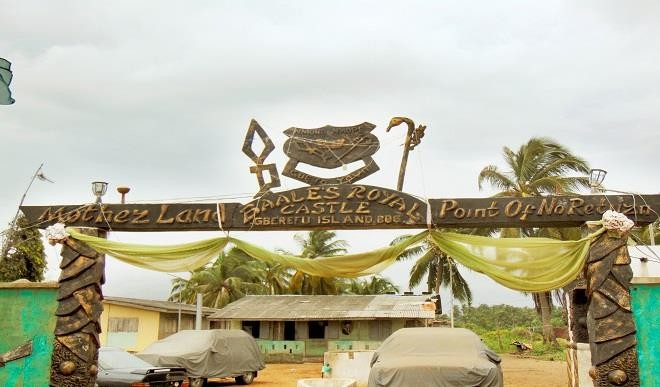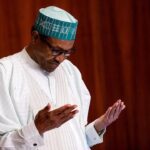
We sped along muddy paths seeking the camps of the nomadic Fulani scattered across vast land in a part of Lagos state which shares a border with Benin republic. Badagry, which has countless historical sites lies by the Atlantic, and its waters glow as far as the eye can see. It’s a stunning fun-filled environment for a nomad and it has similar effect on this reporter who is on annual leave. My eyes take in the splendour of a new setting defined by cows, wind, the nomad and the sea.
The entire drama of seeking out the camps always fills me with joy. My mind recalls a recent trip: The settlement of Saidu Basso, lying on a height a little beyond a dying river in Enugu but itself so full of life and energy, rises before me. This is work but it is also fun. Our guide was seated upon the foremost motorcycle, and the rest of us made up the rear. It was in this order that we sped along. There is much green country around Badagry and therefore many cows, and after moving through this unbroken setting, briefly punctuated by flooded sections of the winding path, it was also refreshing to see the camp loom up, and to also notice the herdsman and his family seated as though awaiting our arrival.
One defining characteristic of the nomads in this part of the country, is the fact that majority of them migrated from Kwara State seeking the rich grazing grounds of Badagry. Since they learnt how to speak Yoruba in Kwara, then a turn towards the south west, rather than a location up north became very attractive when they thought of migrating, so argues Umar Sanda, the young Jagaban Badagry. Musa Abubakar, 42, hails from Kwara state. He has 5 children and 2 wives, and his family is bilingual, speaking both Yoruba and Fulfulde. Most of the nomads here run multicultural homes, for two cultures inevitably start to come together in the households in the area. The search for good grazing land brought him and many others to Badagry, which he says is a very peaceful community, almost completely free of the tensions nomads tend to encounter in other parts of the country. Badagry is a favourite destination for nomads in Kwara, hence a great population of nomads born in Kwara can be found there.
Abdullahi Gelani arrived Badagry in year 2000. He has 2 wives and 10 children. He tells Daily Trust ‘I see Badagry as home,’ explaining “I will not be happy if I am asked to leave here together with my family,” referring to recent tensions between nomads and farmers in the south west.
He adds “I left Ilorin a long time ago, and I am now enjoying Lagos State and there is peace here.” He comments on his neighbours “The local people are very happy with us, for they come to the camp to buy cheap cows, and they also get milk from us.” Shedding more light on the relationship the nomads have with their hosts, he says “If we ask for a place to set up a camp, the Yoruba readily give us, and when our cattle enter their farms, we discuss with the farmer, and we settle the issue without a quarrel.”
In Badagry Central Local government, we come across Idris Musa. His words “I enjoy Badagry, and I haven’t gone back to Kwara since I arrived. My children speak the local language,and my Yoruba neighbours are very nice too.”
Yakubu Saidu opens up on the process of socialization which many of the nomads went through in Badagry “Some among us were brought by our fathers as small boys, so we grew up to like Badagry, and matured speaking the local dialect.” The nomads are happy in Badagry, he tells me and emphasises “the population of cows is expanding, and most of the children speak Fulfulde and Yoruba.” Abubakar Mohammed salutes the cordial atmosphere in the locality and describes the experience “The people here are simple and easy going, and I like to relate with them.”
Umar Abdullahi was born in Badagry and has a Yoruba wife. He says “We are in Yorubaland, so I chose a Yoruba wife from Badagry.” There are many like him. Umar Bashir married a Yoruba wife named Radiat. Formerly a Christian she converted to Islam upon getting married. He says that his wife is learning to speak Fulfulde. Another herder, Mohammadu Surke tells Daily Trust that he has been in Badagry for 48 years, and he is clearly still in love with the town and the environment.
Sanda who also, like many around him, migrated from Kwara is the Chairman, Miyetti Allah Cattle Breeders Association of Nigeria (MACBAN) Badagry chapter, and tells me that there are over 200 Fulani youths in Badagry and “majority of them can speak Yoruba, for a good number of them were born here.” Of this number, he argues “30% have been to their villages in the north, while the rest haven’t.”
He adds “a good percentage of the youths claim Lagos state as state of origin, but alas they do not receive scholarships or any special favours. They are Lagosians only in name.” He appeals to the state government “to help the nomads in terms of schools and the extension of scholarships to the group. Many of us have finished school, but we don’t have work.”
He states that the Oba of Badagry has always played a key role in guaranteeing cordial relations between the nomads and their yoruba hosts. Usman Umar, Sarkin Fulani, Badagry, says that Fulani have been in the area for the past 181 years, and adds that hs family hails from Kontagora in Niger State. But today, he is proud of his status as a son of Badagry.
His words “There are little or no problems between the Fulani and the people of Badagry. I was born in Badagry. I am now the third Sarkin Fulani in Badagry.” Dr. Nojeem Sanni is the Baale of Gberefu Island, a part of Badagry. He comments on Fulani/Yoruba relationships in the area “Here we work as brothers to achieve peace and harmony between both communities,” adding that his family has had a personal relationship with the family of Sarkin Fulani for many years.
According to him “I knew Sarkin Fulani and his father. My father also knew the grandfather of Sarkin Fulani, who also lived among us here in Badagry. This means we have been working together from one generation to the next over a long period of time.”
He sheds light on the ties that unite the two groups “We cannot do without the Fulani,and this is because of their special gifts in the rearing of cows. We are farmers and we need the cows to a certain extent.”

 Join Daily Trust WhatsApp Community For Quick Access To News and Happenings Around You.
Join Daily Trust WhatsApp Community For Quick Access To News and Happenings Around You.


